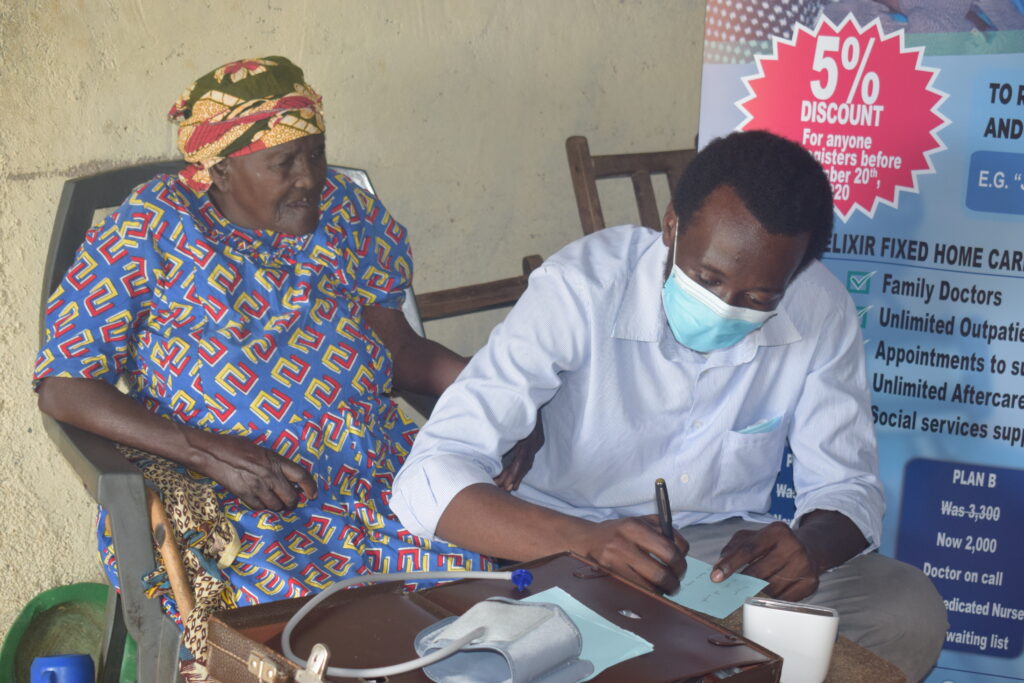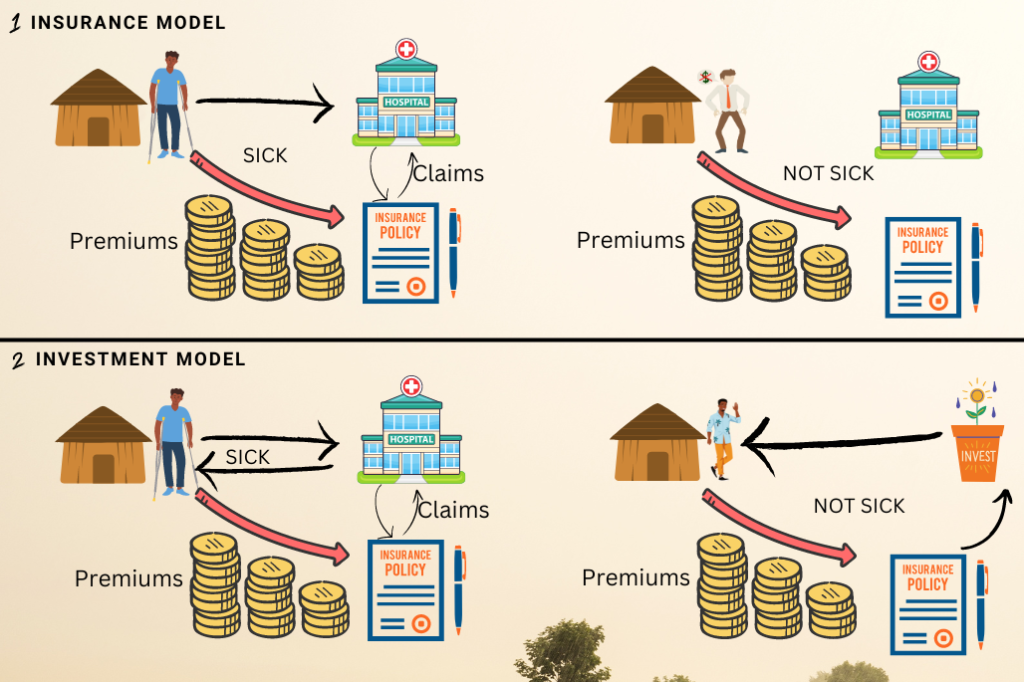
Transforming Healthcare for Vulnerable Communities.
Introduction.
Project Elixir, a pilot innovative health service delivery initiative, emerged as a beacon of hope for vulnerable communities in Kisumu and Siaya County, Kenya. Developed and piloted by Pendeza Community between 2020 and 2021, Project Elixir aimed to bridge critical gaps in healthcare access, particularly for poor and vulnerable households.
The Challenge.
Despite efforts by the Kenyan government, accessing primary healthcare (PHC) remained a significant challenge for many. High out-of-pocket expenses, lack of insurance coverage, and limited infrastructure hindered timely and equitable healthcare delivery. Project Elixir sought to address these issues head-on.
Key Components.
- Virtual Consultations: Project Elixir leveraged digital platforms to provide virtual consultations. Patients could connect with healthcare providers remotely, reducing the need for physical visits and improving accessibility.
- Home-Based Care: Recognizing that some patients faced barriers to reaching healthcare facilities, Project Elixir introduced home-based care services. Trained community health workers visited households, offering personalized care and monitoring.
- Business Support: Beyond medical services, Project Elixir empowered vulnerable households economically using the BRAC model. It provided business support, training, and resources to enhance livelihoods and financial stability.

Project Elixir, funded by community donations and implemented in Kisumu and Siaya, aimed to provide holistic social healthcare to vulnerable households by integrating virtual healthcare services with business support for families affected by medical expenses. Emphasizing a social investment approach for achieving universal health coverage (UHC), the project viewed health consumers as stakeholders in healthcare rather than mere patients. Consumer research in Nairobi and Kisumu guided its development. Despite efforts to garner support, Kisumu County Government, already committed to a deal with NHIF, could not accept a new initiative. Subsequently, Kisumu launched Marwa, a health insurance service, while Siaya perceived the project as overly ambitious. Research, such as Assan A.’s study in Ghana (2018), recognized by WHO for its healthcare system, highlights the sustainability of public-private partnerships in healthcare. It advocates for community-centric healthcare delivery to achieve UHC, noting the limitations of relying solely on government financing without continuity frameworks.
Impact and Success Stories
- Improved Access: Project Elixir pilot targeted poor and vulnerable households, serving 15 families within Kisumu City and 2 households in Bondo sub-county, Siaya County.
- Health Equity: By combining virtual consultations and home-based care, Project Elixir reduced disparities in healthcare access. Vulnerable individuals received timely attention, preventing unnecessary complications.
- Economic Empowerment: Business support initiatives helped families generate income, fostering resilience and self-sufficiency.
- Affordable Healthcare: By offering services at lower costs, project Elixir helped reduce the financial burden on our patients. This approach prevented many from falling deeper into poverty due to exorbitant health bills.
- Accessibility and Reach: Project Elixir often operated in underserved areas, making healthcare more accessible to remote and marginalized populations. Their presence in the Pendeza community ensured that even the most vulnerable received the care they needed.
- Empowerment through Employment: Project Elixir created jobs for local community members, including roles for community health workers. This not only improved livelihoods but also enhanced the overall economic stability of our community.
Lessons Learned
- Community Engagement: Involving communities in healthcare design and decision-making is crucial. Project Elixir’s success hinged on active participation from local residents.
- Technology as an Enabler: Digital tools can revolutionize healthcare delivery. Virtual consultations and data-driven insights enhance efficiency and reach.
- Financial Support: While the BRAC model effectively uplifted families, it incurred substantial overhead costs.
Looking Ahead
Project Elixir’s legacy extends beyond its pilot phase. It serves as a model for community-driven, technology-enabled healthcare. As Kenya strives for Universal Health Coverage (UHC) through the Social Health Insurance Fund (SHIF), social health investment initiatives like Project Elixir pave the way for a healthier, more equitable future.

The Importance of Ongoing Support
While the achievements of Project Elixir and our partner social enterprises are commendable, there is still much work to be done. Continued support is essential for several reasons:
- Scaling Impact: Additional resources enable social enterprises to expand their operations, reach more people, and introduce new services and innovations. This scaling is crucial for addressing the healthcare needs of a growing population.
- Sustaining Operations: Consistent backing ensures that social enterprises can maintain their services, pay their workers fairly, and invest in community health infrastructure.
- Innovation and Development: Support enables social enterprises to invest in research and development, leading to more effective and efficient healthcare solutions tailored to the community’s needs.
- Community Resilience: Backing social enterprises contributes to building a resilient community capable of withstanding health crises and economic challenges. This resilience is vital for long-term stability and growth.
Making a Difference Together
The success stories from Project Elixir are a testament to what can be achieved when communities and social enterprises work together with the support of dedicated partners. By continuing to invest in these enterprises, we can ensure that more individuals and families in the Pendeza community have access to the healthcare they deserve.
Together, we can build a healthier, more resilient Pendeza community, restoring health, hope, and dignity to countless lives.
